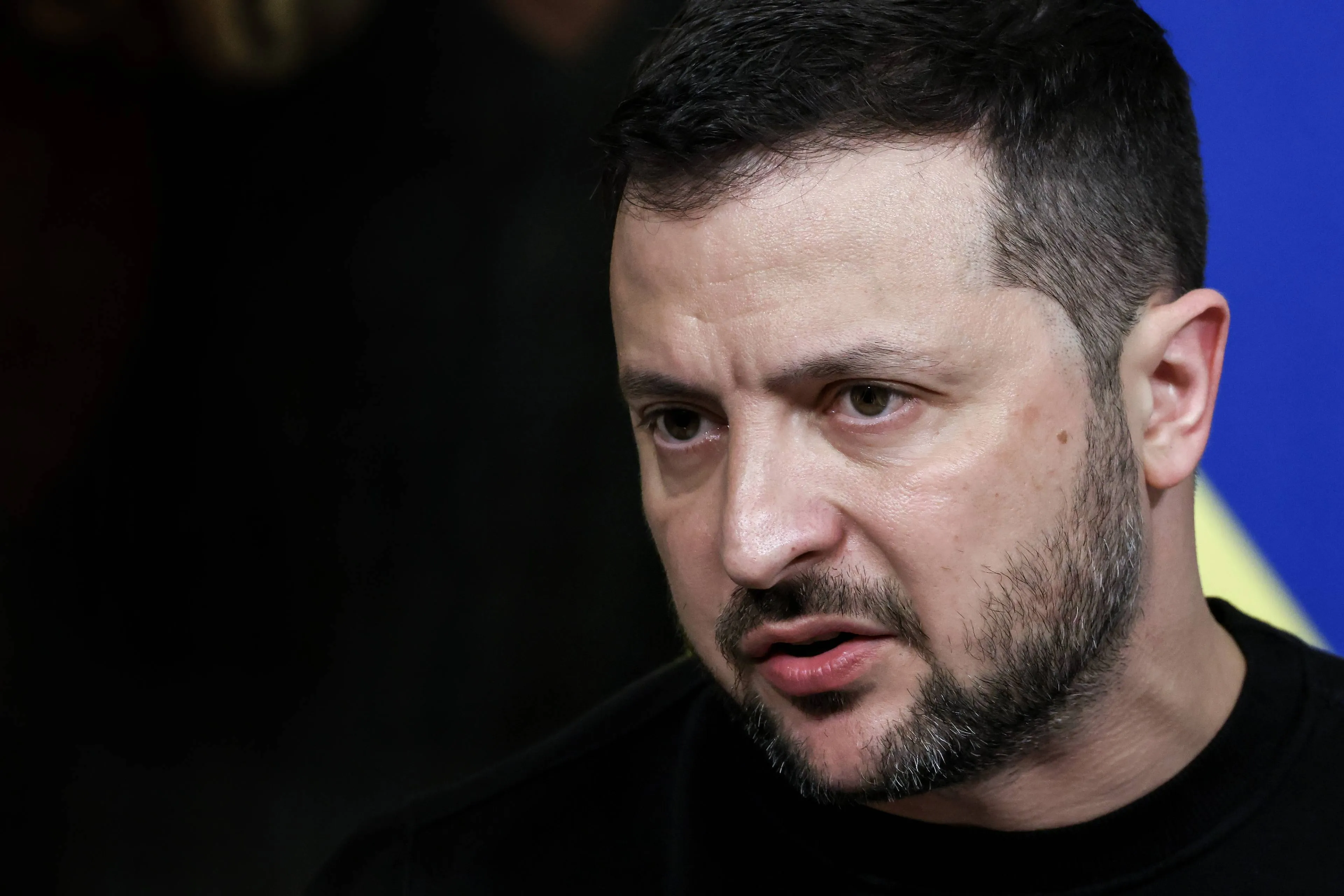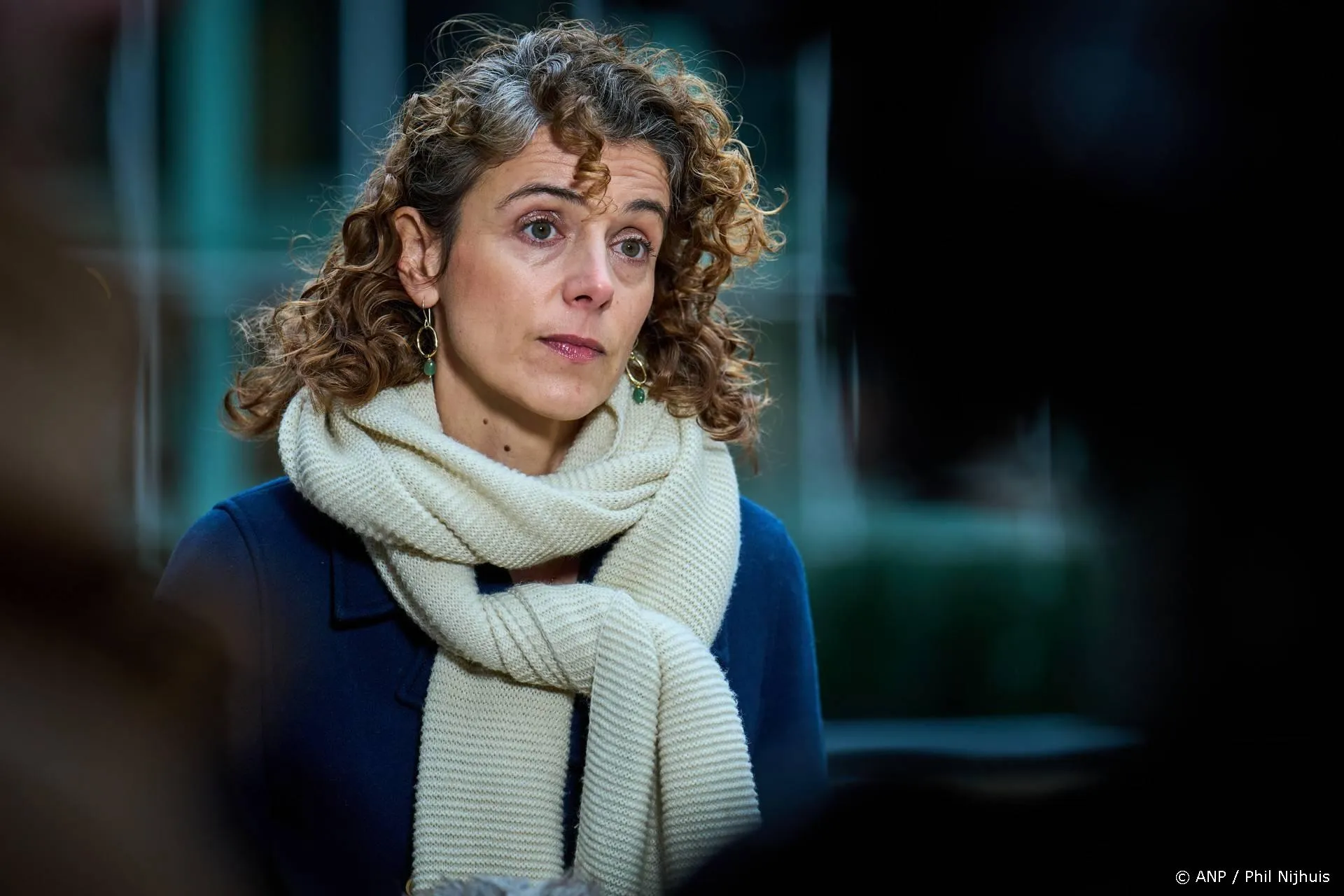Is er nog iets goeds te melden over het laatste rapport van het VN-klimaatpanel? Ja zeker!
Opvallend is het contrast tussen de schrille, alarmerende toonzetting van de samenvatting en de mediaberichten over het rapport en de gematigde inhoud daarvan.
Reeds eerder berichtte ik dat het officieel beleid van de BBC is om klimaatsceptici geen podium te geven. Dat betekent dat haar kijkers en luisteraars voortdurend worden overspoeld met paniekverhalen over die verschrikkelijke opwarming van de aarde (die maar steeds niet wil komen), terwijl een tegengeluid ontbreekt. Jeremy Paxman slaagt er echter toch af en toe in om die oekaze enigszins te omzeilen en een kritische noot te kraken. Zo had hij onlangs een vraaggesprek met James Lovelock, voorheen een alarmist van het zuiverste water, maar thans een scepticus..
James Lovelock
Ik pik een aantal passages uit het interview:
Ik pik een aantal passages uit het interview:
[...] James Lovelock: Take this climate matter everybody is thinking about. They all talk, they pass laws, they do things, as if they knew what was happening. I dont think anybody really knows whats happening. They just guess. And a whole group of them meet together and encourage each others guesses.
Jeremy Paxman: That latest report from the Intergovernmental Panel on Climate Change did suggest that there was something inevitable about climate change, that it had already begun and that we had to adjust to it. All of these things are true, are they not, as far as we know?
James Lovelock: Absolutely, that is true, the last [IPCC] report is very similar to the statements I made in my book about 8 years ago, called The Revenge of Gaia. Its almost as if theyve copied it.
Jeremy Paxman: Sure. But you then, after publishing these apocalyptic predictions, you then retracted them.
James Lovelock: Well, thats my privilege. You see, Im an independent scientist. Im not funded by some government department or commercial body or anything like that. If I make a mistake, then I can go public with it. And you have to, because it is only by making mistakes that you can move ahead.
Jeremy Paxman: It follows from that, does it not, that this panel on climate change which has, as you point out, vested interests involved, may be just as likely or even more likely to make mistakes?
James Lovelock: That would be a lot of hubris on my part to say that, but it is possible.
Bron hier.
Jeremy Paxman: That latest report from the Intergovernmental Panel on Climate Change did suggest that there was something inevitable about climate change, that it had already begun and that we had to adjust to it. All of these things are true, are they not, as far as we know?
James Lovelock: Absolutely, that is true, the last [IPCC] report is very similar to the statements I made in my book about 8 years ago, called The Revenge of Gaia. Its almost as if theyve copied it.
Jeremy Paxman: Sure. But you then, after publishing these apocalyptic predictions, you then retracted them.
James Lovelock: Well, thats my privilege. You see, Im an independent scientist. Im not funded by some government department or commercial body or anything like that. If I make a mistake, then I can go public with it. And you have to, because it is only by making mistakes that you can move ahead.
Jeremy Paxman: It follows from that, does it not, that this panel on climate change which has, as you point out, vested interests involved, may be just as likely or even more likely to make mistakes?
James Lovelock: That would be a lot of hubris on my part to say that, but it is possible.
Bron hier.
Helaas kan het vraaggesprek vanuit het buitenland niet worden bekeken.
Matt Ridley
Eerder heb ik kritiek gehad op de alarmistische boodschap van het IPCC. Maar we dienen een scherp onderscheid te maken tussen de inhoud van het basisrapport, dat slecht door weinigen wordt gelezen, en dat wat de spindoctors er in de samenvatting van maken, plus het sausje dat de media er vervolgens overheen gieten. In elke stap wordt de alarmistische toonzetting versterkt zodanig zelfs dat het origineel onherkenbaar wordt.
Eerder heb ik kritiek gehad op de alarmistische boodschap van het IPCC. Maar we dienen een scherp onderscheid te maken tussen de inhoud van het basisrapport, dat slecht door weinigen wordt gelezen, en dat wat de spindoctors er in de samenvatting van maken, plus het sausje dat de media er vervolgens overheen gieten. In elke stap wordt de alarmistische toonzetting versterkt zodanig zelfs dat het origineel onherkenbaar wordt.
Matt Ridley is er in gedoken en kwam tot een verrassend ontdekking. Onder de titel, 'The IPCC Just Agreed With Nigel Lawson', schreef hij een lang en zeer doorwrocht artikel in de 'The Spectator'. Ik pik er een aantal passages uit.
Nigel Lawson was right after all. Ever since the Centre for Policy Studies lecture in 2006 that launched the former chancellor on his late career as a critic of global warming policy, Lord Lawson has been stressing the need to adapt to climate change, rather than throw public money at futile attempts to prevent it. Until now, the official line has been largely to ignore adaptation and focus instead on mitigation the misleading term for preventing carbon dioxide emissions.
That has now changed. The received wisdom on global warming, published by the Intergovernmental Panel on Climate Change, was updated this week. The newspapers were, as always, full of stories about scientists being even more certain of environmental Armageddon. But the document itself revealed a far more striking story: it emphasised, again and again, the need to adapt to climate change. Even in the main text of the press release that accompanied the report, the word adaptation occurred ten times, the word mitigation not at all.
The distinction is crucial. So far, the debate has followed a certain bovine logic: that global warming is happening, so we need to slow it down by hugely expensive decarbonisation strategies green taxes, wind farms. And what good will this do? Is it possible to stop global warming in its tracks? Or would all these green policies be the equivalent of trying to blow away a hurricane? This question just how much can be achieved by mitigation is one not often addressed.
There is an alternative: accepting that the planet is warming, and seeing if we can adjust accordingly. Adaptation means investing in flood defences, so that airports such as Schiphol can continue to operate below existing (and future) sea level, and air conditioning, so that cities such as Houston and Singapore can continue to grow despite existing (and future) high temperatures. It means plant breeding, so that maize can be grown in a greater range of existing (and future) climates, better infrastructure, so that Mexico or India can survive existing (and future) cyclones, more world trade, so that Ethiopia can get grain from Australia during existing (and future) droughts. ...
In short, there is a great deal in this report to like. It has, moreover, toned down the alarm considerably. Even the New Scientist magazine has noticed that the report backs off from some of the predictions made in the previous report and despite the urgings of Ed Davey to sex up the summary during last weeks meeting in Yokohama, New Scientist noticed that the report has even watered down many of the more confident predictions that appeared in the leaked drafts.
For instance, references to hundreds of millions of people being affected by rising sea levels were removed from the summary, as were statements about the impact of warmer temperatures on crops. The report bravely admits that invasive alien species are a far greater threat to species extinction than climate change itself. Even coral reefs, the report admits, are threatened mostly by pollution and overfishing, which might be exacerbated at the margin by climate change. So why dont we have intergovernmental panels on invasive species and overfishing?
As these examples illustrate, perhaps most encouraging of all, the report firmly states that the impact of climate change will be small relative to other things that happen during this century: For most economic sectors changes in population, age structure, income, technology, relative prices, lifestyle, regulation and governance will be large relative to the impacts of climate change. So yes, the world is heating up. But in many ways, it will be a better world. ...
That has now changed. The received wisdom on global warming, published by the Intergovernmental Panel on Climate Change, was updated this week. The newspapers were, as always, full of stories about scientists being even more certain of environmental Armageddon. But the document itself revealed a far more striking story: it emphasised, again and again, the need to adapt to climate change. Even in the main text of the press release that accompanied the report, the word adaptation occurred ten times, the word mitigation not at all.
The distinction is crucial. So far, the debate has followed a certain bovine logic: that global warming is happening, so we need to slow it down by hugely expensive decarbonisation strategies green taxes, wind farms. And what good will this do? Is it possible to stop global warming in its tracks? Or would all these green policies be the equivalent of trying to blow away a hurricane? This question just how much can be achieved by mitigation is one not often addressed.
There is an alternative: accepting that the planet is warming, and seeing if we can adjust accordingly. Adaptation means investing in flood defences, so that airports such as Schiphol can continue to operate below existing (and future) sea level, and air conditioning, so that cities such as Houston and Singapore can continue to grow despite existing (and future) high temperatures. It means plant breeding, so that maize can be grown in a greater range of existing (and future) climates, better infrastructure, so that Mexico or India can survive existing (and future) cyclones, more world trade, so that Ethiopia can get grain from Australia during existing (and future) droughts. ...
In short, there is a great deal in this report to like. It has, moreover, toned down the alarm considerably. Even the New Scientist magazine has noticed that the report backs off from some of the predictions made in the previous report and despite the urgings of Ed Davey to sex up the summary during last weeks meeting in Yokohama, New Scientist noticed that the report has even watered down many of the more confident predictions that appeared in the leaked drafts.
For instance, references to hundreds of millions of people being affected by rising sea levels were removed from the summary, as were statements about the impact of warmer temperatures on crops. The report bravely admits that invasive alien species are a far greater threat to species extinction than climate change itself. Even coral reefs, the report admits, are threatened mostly by pollution and overfishing, which might be exacerbated at the margin by climate change. So why dont we have intergovernmental panels on invasive species and overfishing?
As these examples illustrate, perhaps most encouraging of all, the report firmly states that the impact of climate change will be small relative to other things that happen during this century: For most economic sectors changes in population, age structure, income, technology, relative prices, lifestyle, regulation and governance will be large relative to the impacts of climate change. So yes, the world is heating up. But in many ways, it will be a better world. ...
Na bespreking van enkele beleidsopties concludeert Ridley:
But the one truly bonkers thing to do would be to go unilaterally into a policy of subsidising the rich to install technologies that drive up the cost of energy, desecrate the countryside, kill golden eagles, clear-cut swamp forests in North Carolina, turn grain into motor fuel, so driving up the price of food and killing people, and prevent poor people in Africa getting loans to build coal-fired, cheap power stations instead of inhaling smoke from wood fires cut from virgin forests.
All this we are doing in this country, with almost no prospect of cutting carbon emissions enough to affect the climate. Thats the very opposite of adaptation preventing the economic growth that would enable us to adapt while failing to prevent any climate change.
Lees verder hier.
All this we are doing in this country, with almost no prospect of cutting carbon emissions enough to affect the climate. Thats the very opposite of adaptation preventing the economic growth that would enable us to adapt while failing to prevent any climate change.
Lees verder hier.
Richard Tol
Het feit dat Richard Tol heeft verzocht zijn naam te laten schrappen van de lijst van auteurs van het IPCCrapport, omdat de samenvatting naar zijn smaak te alarmistisch was ('de vier ruiters van de Apocalyps', zoals hij dat noemde), heeft wereldwijd veel aandacht getrokken. Channel 4 (niet de BBC dus) zond een discussie tussen hem en de Britse aartsalarmist Bob Ward uit.
Het feit dat Richard Tol heeft verzocht zijn naam te laten schrappen van de lijst van auteurs van het IPCCrapport, omdat de samenvatting naar zijn smaak te alarmistisch was ('de vier ruiters van de Apocalyps', zoals hij dat noemde), heeft wereldwijd veel aandacht getrokken. Channel 4 (niet de BBC dus) zond een discussie tussen hem en de Britse aartsalarmist Bob Ward uit.
De inhoud van de discussie is karig. De lichaamstaal van de beide discussianten is daarentegen zeer informatief. De presentatrice suggereert dat Richard Tol een 'agenda' zou hebben vanwege het feit dat hij lid is van de academische adviesraad van de klimaatsceptische 'Global Warming Policy Foundation' (GWPF, waarvan Lord Lawson voorzitter is). Tol reageerde daarop met de vraag wat voor een agenda dat dan zou moeten zijn? Hij lichtte toe dat hij lid is van een aantal adviesraden, waarin hij overal hetzelfde standpunt uitdraagt.
Kijk en luister hier.
Al met al wordt de onzekerheid over toekomstige ontwikkeling van het klimaat meer en meer erkend. De wetenschap krabbelt terug en het alarmisme is op zijn retour. Wat het beleid betreft is de aandacht fors verschoven van mitigatie naar adaptatie. Maar het werkelijke beleid is net als een olietanker. Die verandert maar langzaam van koers, eens te meer daar er velen zijn die financieel, ideologisch, wetenschappelijk en/of politiek garen spinnen bij het instandhouden van de klimaathype. Het klimaatbeleid is de resultante van een convergentie van al deze elementen, versterkt door tunnelvisie en groepsdenken. De gedachte dat het voortvloeit uit een een wereldwijde samenzwering dient m.i. naar het land der fabelen te worden verwezen.
Voor mijn eerdere DDSbijdragen zie hier.
Ga verder met lezen
Dit vind je misschien ook leuk
Laat mensen jouw mening weten
Lees ook
Loading


